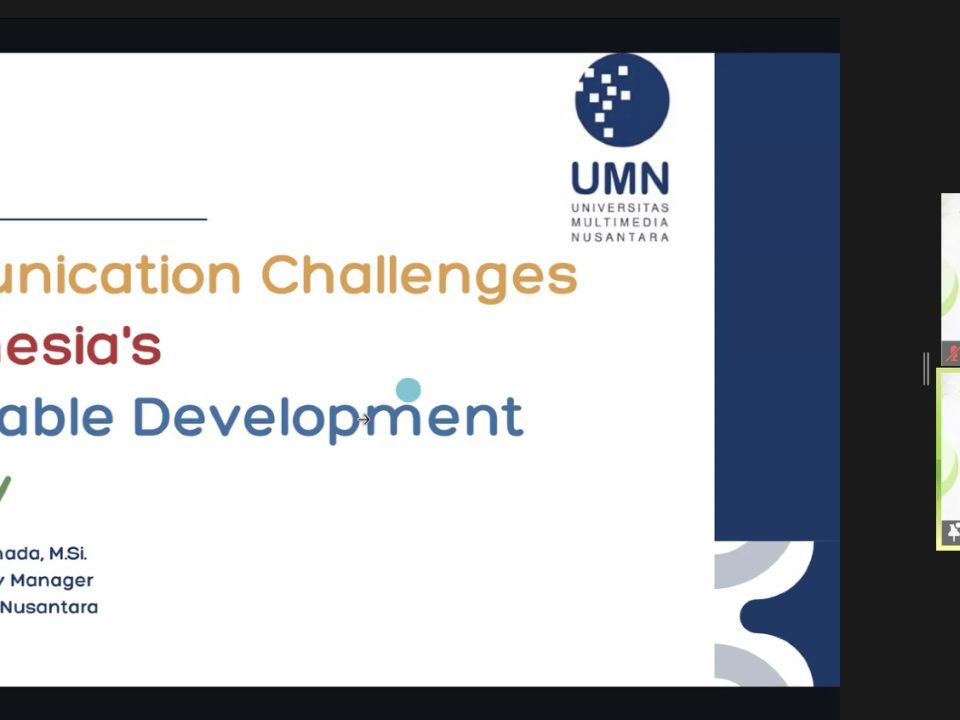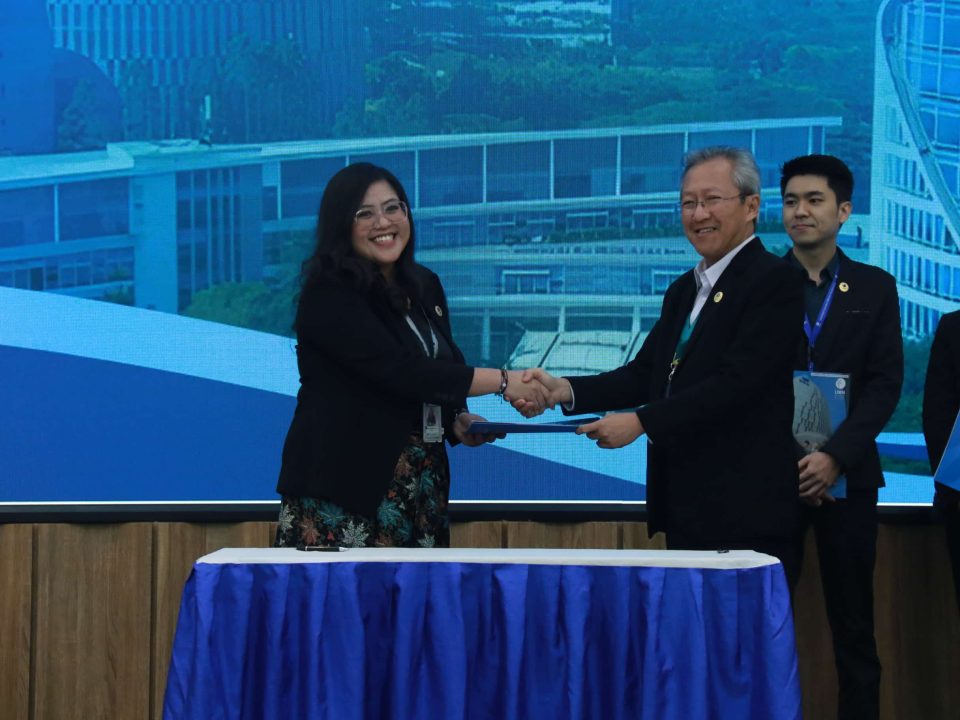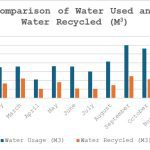
UMN Achieves Nearly 45% Water Recycling: A Milestone in Campus Sustainability
December 20, 2023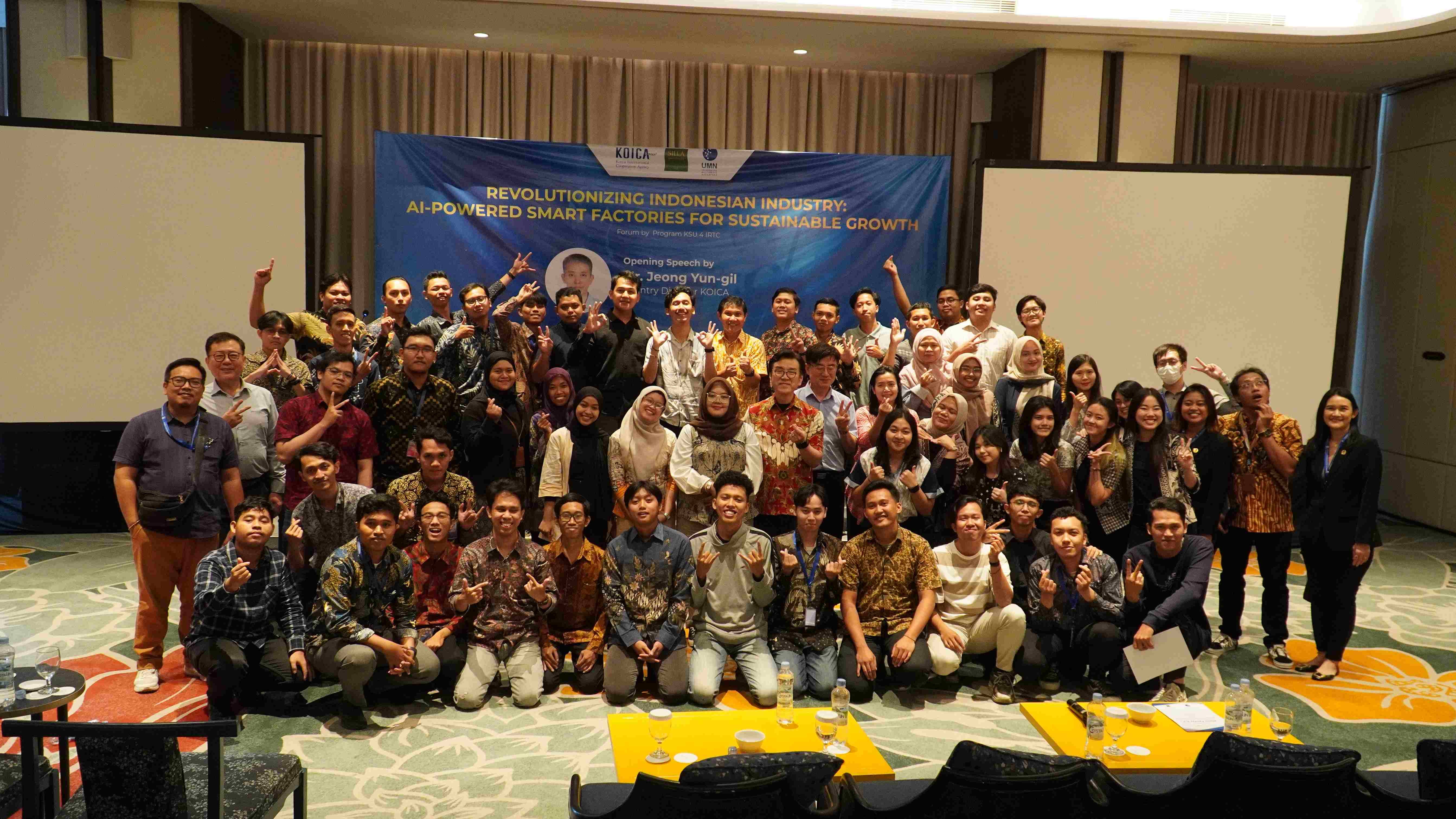
UMN, Silla University, and KOICA Held a Conference on AI & Industry 4.0 in Indonesia
December 22, 2023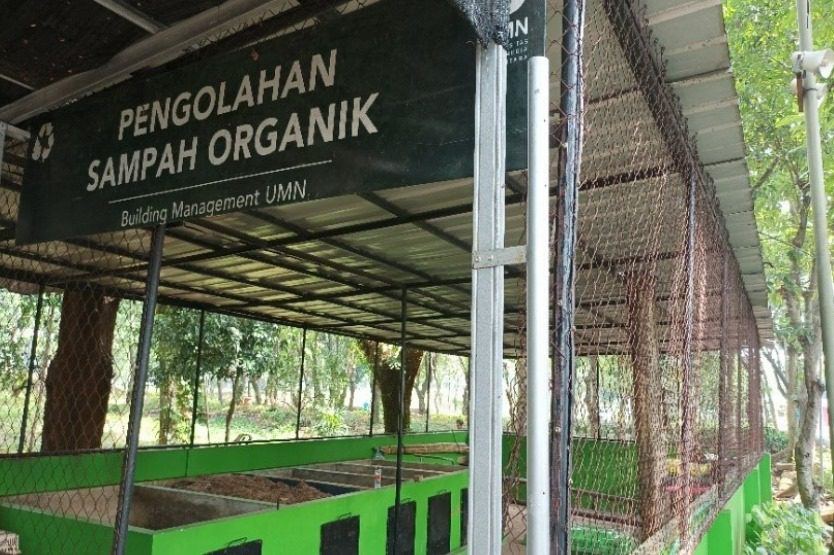
Composting area for organic waste (Doc. UMN)
Tangerang –Like other public institutions, UMN generates waste every day. To address waste management and ensure we do not contribute to environmental pollution, we regulate our waste production with several policies, including an Ethical Sourcing Policy for food and supplies, a Policy to Minimize Plastic Use and Disposable Items, and a Waste Disposal Policy (covering hazardous materials and landfill waste). These policies are implemented to not only UMN’s Academic Community but also outsourced services, supply chain and suppliers, aiming for a wider impact of initiatives.
Broadly, we classify waste into three main categories: Organic, Inorganic, and Hazardous.
Organic Waste
UMN manages organic waste through a dedicated composting area, where plant-based waste, such as fallen leaves collected around campus, is processed into compost. This compost is then used as plant fertilizer to support our campus’s green spaces, creating a sustainable cycle of waste reuse, with 100% of our organic waste recycled.
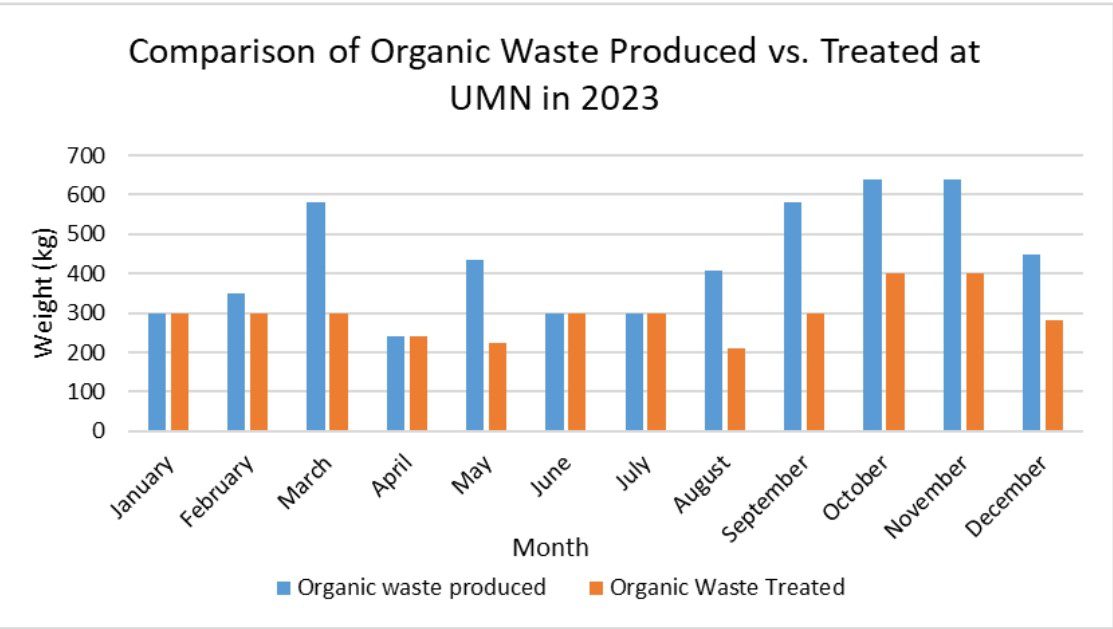 UMN’s Organic Waste Produced vs. Treated Throughout 2023 (Doc. UMN)
UMN’s Organic Waste Produced vs. Treated Throughout 2023 (Doc. UMN)
Additionally, food waste from the campus canteen, such as fruit peels, is processed in eight eco-enzyme units that create eco-friendly cleaning and gardening solutions. This eco-enzyme is harvested every three months, helping reduce waste and promote sustainable practices on campus. In 2023 alone, UMN processed 3,555 kg of organic waste, effectively treating over 68% of the total 5,217 kg generated.
Inorganic Waste
Inorganic waste is the largest contributor to waste at UMN, slightly surpassing organic waste. This includes materials such as plastics, metals, glass, and other non-biodegradable items, which contribute significantly to the university’s overall waste footprint. As part of our commitment to sustainability, UMN collaborates with third-party organizations to effectively manage and recycle inorganic waste, ensuring proper disposal and reducing environmental impact. This partnership is a crucial effort in advancing our waste management goals and promoting a greener campus.
For plastic bottles, we have established a partnership with Plasticpay, a social movement with a digital platform that encourages the community to transform plastic waste into valuable products. Collected plastic waste is processed into granules, Recycled Polyester Staple Fiber (Re-PSF), yarn, and fabric. The result is eco-friendly fiber and recycled fabric that meets high-quality standards and can be used in various products, such as pillows, toys, bedding, carpets, furniture, automotive interiors, and both woven and non-woven items. Plasticpay collects the plastic waste from UMN once a week, and each plastic bottle collected earns Plasticpay points, which can be exchanged for cash. Click Here for MoU with Plasticpay
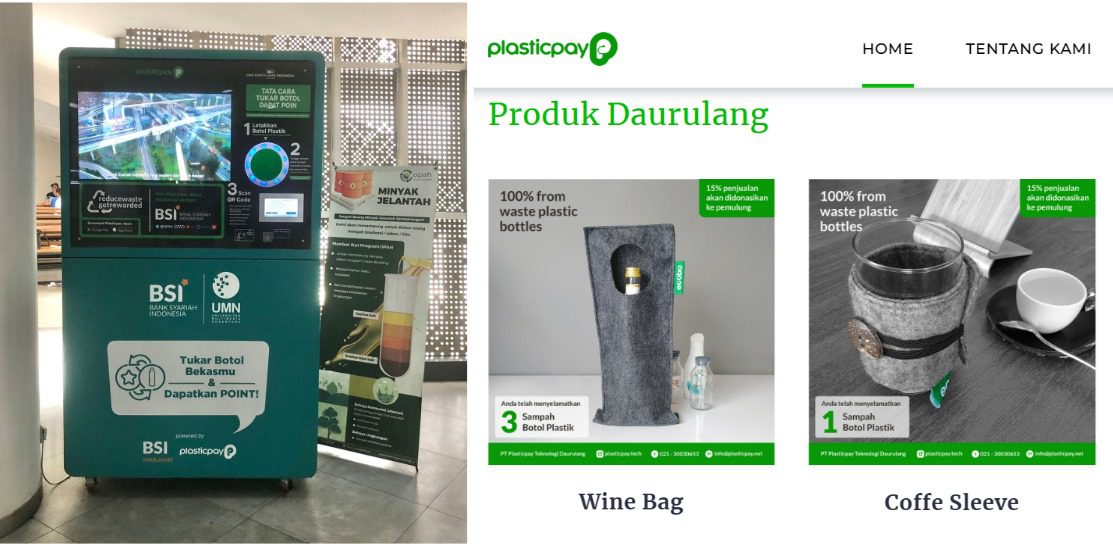
Plasticpay bottle collection machine and their final product (Doc. UMN and Plastic Pay)
On average, UMN manages approximately 72 kg of inorganic waste per month through Plasticpay, totaling around 872 kg plastic recycled per year.
In addition to plastic, paper waste—such as used printouts and cardboard—is also a significant portion of our waste output. To address this, we are partnering with Rapel, a sustainable waste management app operated by PT. Wahana Anugerah Energi. Rapel provides collection services for recyclable waste, ensuring that paper and other recyclable materials are processed responsibly and diverted from landfills. Through this collaboration, UMN reinforces its commitment to sustainable waste practices and reduces its environmental footprint.
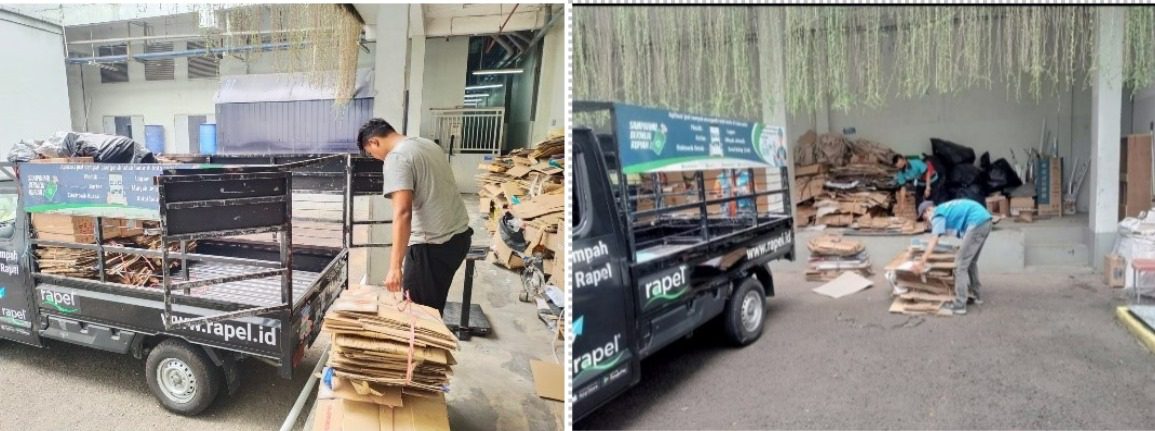
(Doc. UMN)
Each month, UMN collects approximately 300 kg of paper waste, which is managed through our partnership with Rapel. This regular collection totals about 3,634 kg of paper waste per year. Combined with the 872 kg of plastic waste managed by Plasticpay, UMN’s total inorganic waste recycling reaches an impressive 4,506 kg annually.
Hazardous Waste
Hazardous waste management at UMN is structured under SOP SKL-02/PKL 01/SOP-09, which outlines comprehensive guidelines for sorting, storing, processing, and disposing of waste. This standard procedure ensures that waste is managed responsibly, reducing risks of contamination and pollution while enabling recycling where possible. The ultimate goal is to prevent hazardous substances from harming the environment and to support UMN’s commitment to sustainable practices.
The waste management process begins with identifying waste types, which are then sorted, handled, and stored according to specific protocols until disposal. Each stage follows careful procedures to minimize any risk of environmental contamination.
All hazardous waste, including regulated B3 waste, is managed in partnership with certified third-party providers. For instance, B3 waste disposal is handled over an MoU with PT Adhika Makmur Persada, ensuring that UMN’s hazardous waste is processed according to the highest standards.
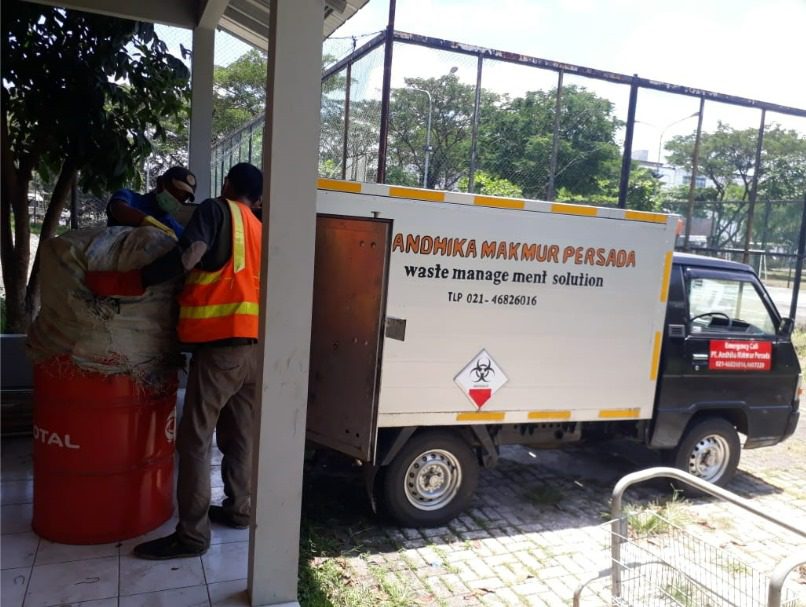
B3 Waste being carefully picked up by partner (Doc. UMN)
Like B3 waste, used cooking oil must also be carefully managed to prevent it from entering water channels and polluting the environment. Proper handling by specialists is essential to ensure it is disposed of responsibly. For this reason, UMN collaborates with PT. Sumber Surya Kalvari to manage used cooking oil waste, ensuring that it is processed in a way that protects natural resources and aligns with sustainable waste practices.
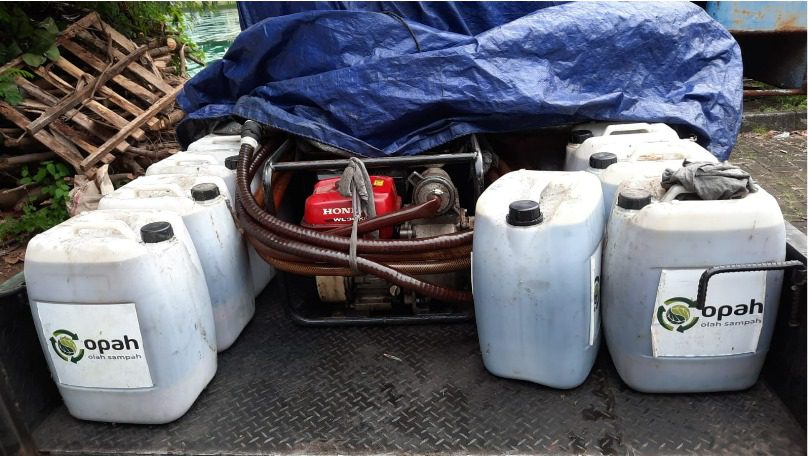
The used cooking oil is collected and picked up for treatment (Doc. UMN)
These certified vendors hold the necessary permits to manage hazardous (B3) waste responsibly. Their qualifications ensure compliance with safety and environmental standards. Details of their certifications and permits can be found here.
Additionally, UMN generates a disposal manifest for all hazardous materials, which is reported to government authorities. This documentation serves as a formal record of UMN’s dedication to safe waste management, emphasizing accountability and transparency. Kindly check the table below to see how much B3 items we have recycled throughout 2023.
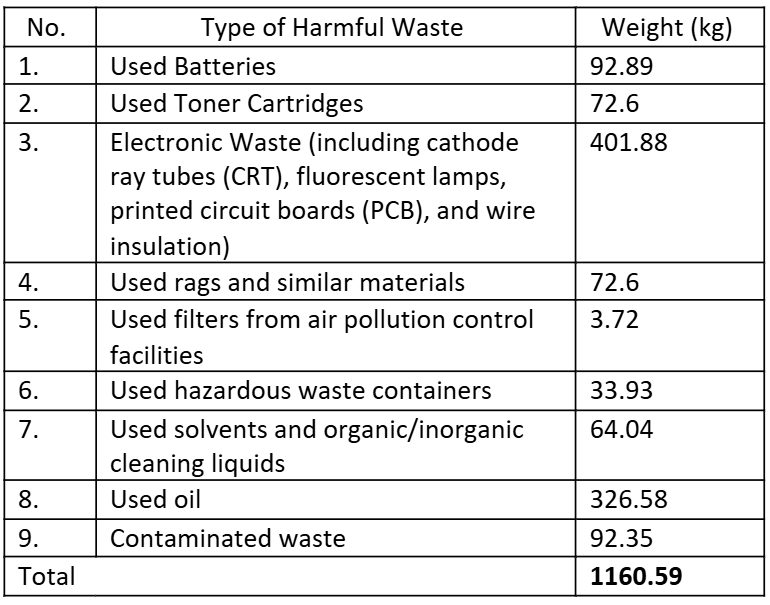
B3 Waste Items Recycled Throughout 2023 (Doc. UMN)
In total, UMN conscientiously disposed 1.160,59 kg of B3 waste, thanks to our dedicated and certified partners. By taking all necessary steps to responsibly manage and dispose of waste, we aim to contribute to a cleaner, healthier environment for future generations.
Our commitment to sustainable practices reflects our dedication to preserving the planet for all.
by Patricia Valencia – UMN News Service
Kuliah di Jakarta untuk jurusan program studi Informatika| Sistem Informasi | Teknik Komputer | Teknik Elektro | Teknik Fisika | Akuntansi | Manajemen| Komunikasi Strategis | Jurnalistik | Desain Komunikasi Visual | Film dan Animasi | Arsitektur | D3 Perhotelan , di Universitas Multimedia Nusantara. www.umn.ac.id

